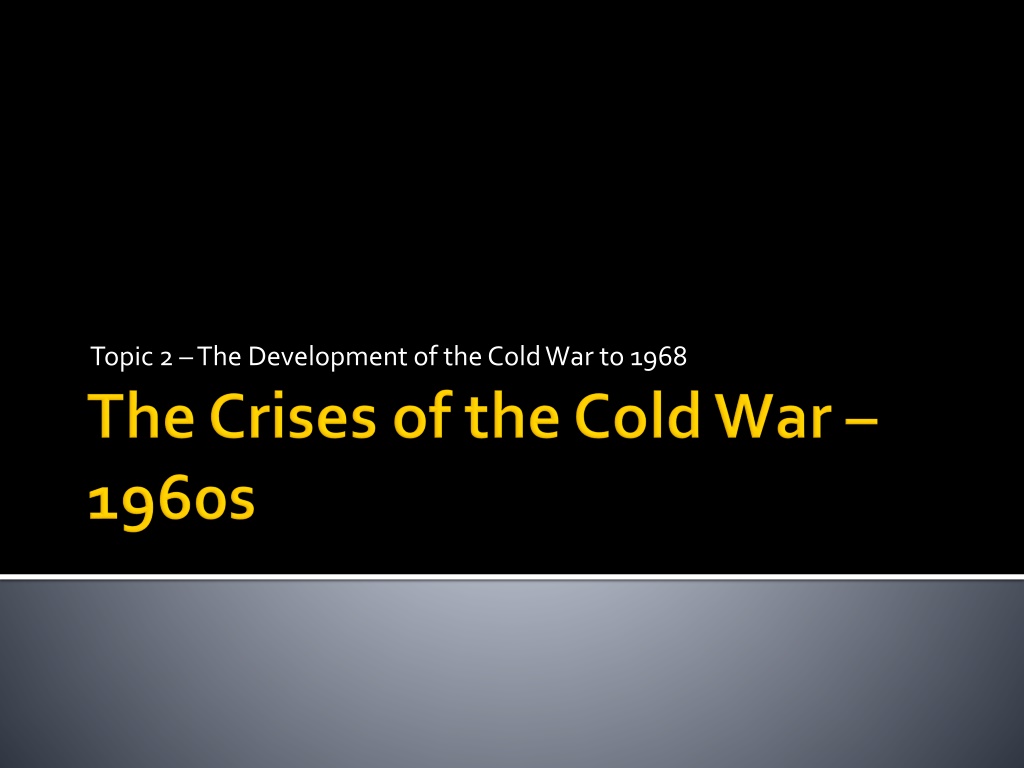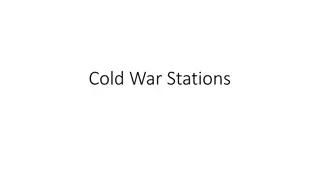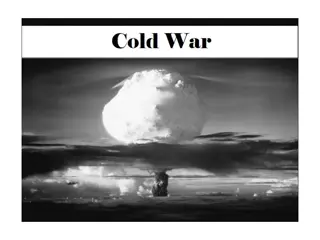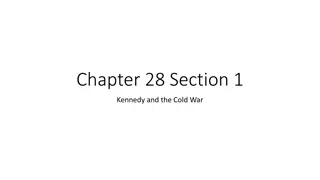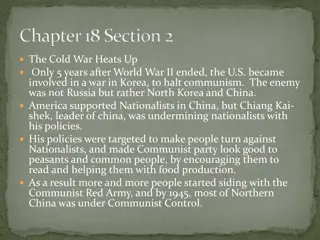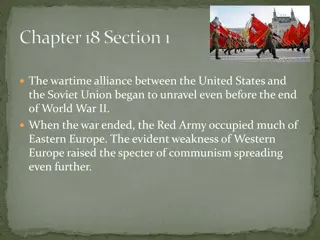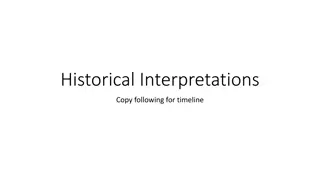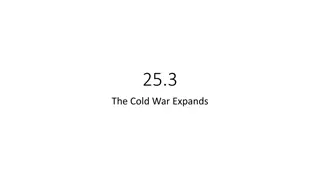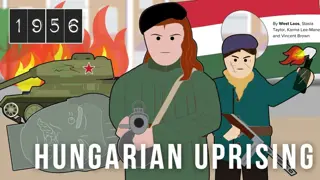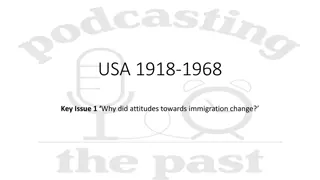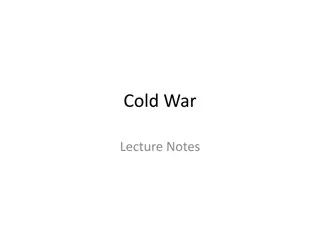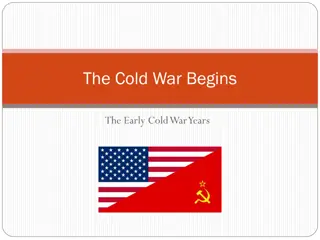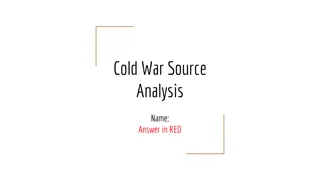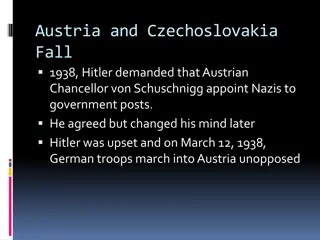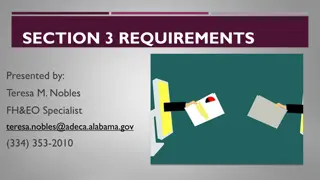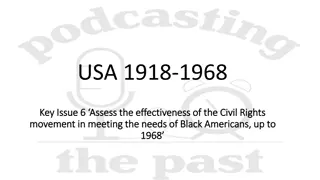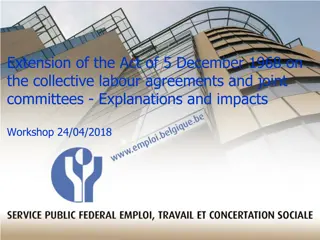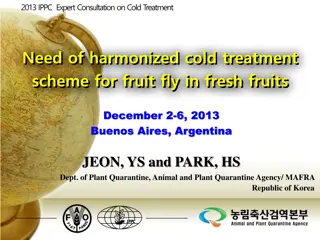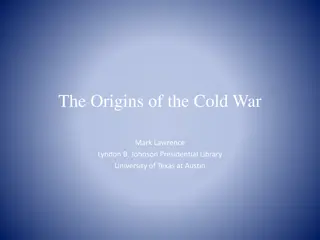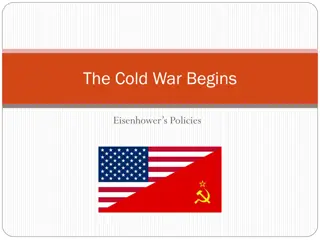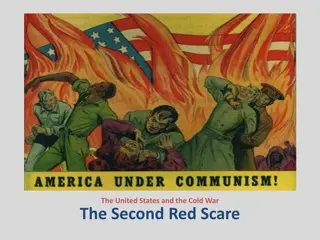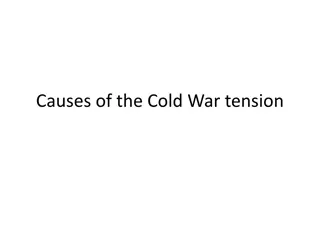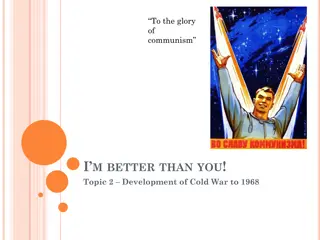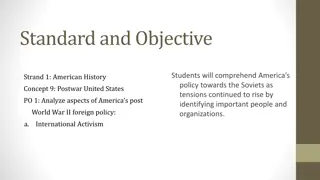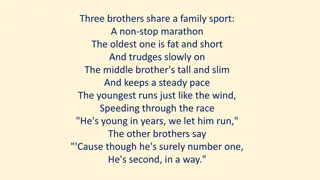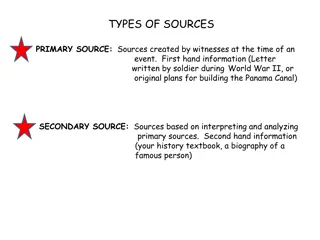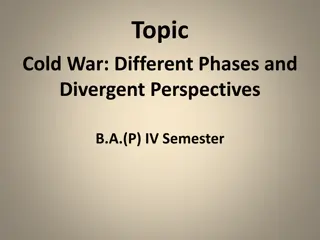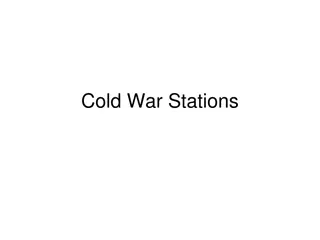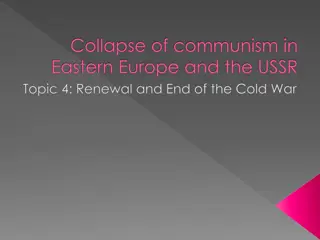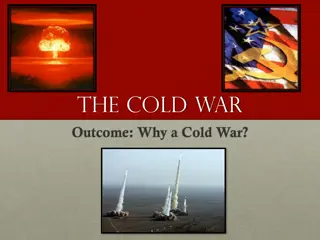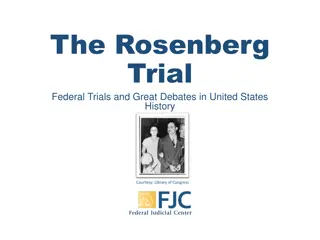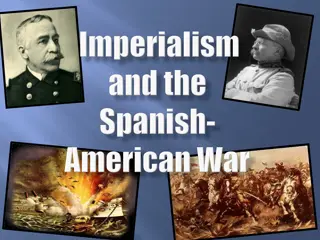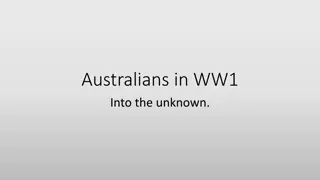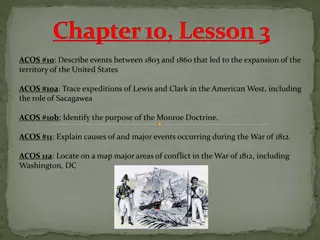The Cold War: Key Events up to 1968
West Berlin thrived while East Berlin suffered as the city became divided by a wall in 1961. The Vietnam War saw North and South Vietnam backed by different superpowers, leading to conflict until 1975. Cuba turned communist under Fidel Castro in 1959, prompting tensions with the US, notably during the Cuban Missile Crisis. Czechoslovakia's attempt at reforms in 1968 was crushed by Soviet intervention.
Download Presentation

Please find below an Image/Link to download the presentation.
The content on the website is provided AS IS for your information and personal use only. It may not be sold, licensed, or shared on other websites without obtaining consent from the author. Download presentation by click this link. If you encounter any issues during the download, it is possible that the publisher has removed the file from their server.
E N D
Presentation Transcript
West Berlin was prospering while East Berlin was floundering Skilled people from East Germany and other Soviet areas were fleeing into West Berlin The soviets erected a barbed wire fence through the city, a few months later a permanent wall was built and the city was divided The wall stood until 1989
The French withdrew from Vietnam in 1954 North Vietnam was supported Russia South Vietnam was supported by the US The country failed to unify War broke out in 1962, the South supported by the US and its allies The US withdrew in 1973 The war ended in 1975
1959: Fidel Castro took control of Cuba and it became communist 1961 the US helped a military coup which failed, named the Bay of Pigs Invasion In 1962 American spy planes photographed missile silos in Cuba and learnt that a convoy of Soviet missiles were on their way to Cuba America demanded the ships turn back, they set up a blockade and waited for the Russians The ships slowed and turned back Khruschchevagreed to remove military equipment from Cuba if Kennedy did the same in Turkey It was humiliating for the Soviets and seen as a victory from Kennedy
Czechoslovakia was resentful of being under Soviet control In 1968 the leader, Alexander Dubek announced a new reform that included personal and economic freedoms The Soviets were unhappy and sent 650,000 troops to Czechoslavakia. They arrested Dubeckand banned all reforms.
